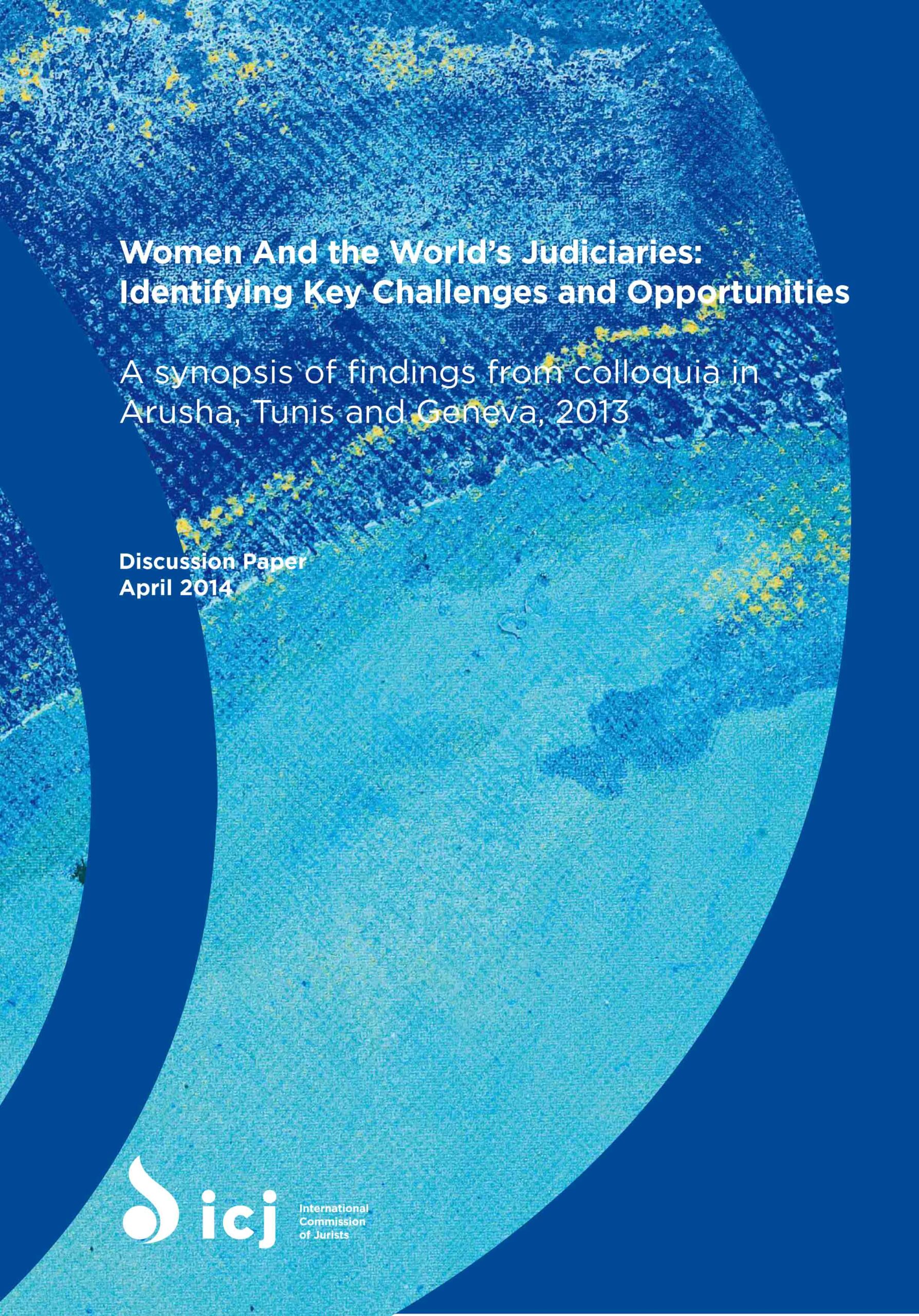In 2013, the ICJ convened three colloquia on women in the judiciary in Arusha, Geneva and Tunis. A brief paper published today summarizes the reflections made and discussions held at these events.
Across the world women’s full and equal participation in the judicial profession remains limited in a great number of jurisdictions.
Global figures indicate that on average women comprise just over 25 percent of the world’s judicial officers, while in many other countries and regions the numbers fall to below 10 percent.
Even in those jurisdictions that have made progress, a striking deficit of women at senior levels of the profession and in leadership roles persists.
At each of these events women judges, lawyers and human rights defenders from over 40 countries came together to share their personal and professional accounts of the challenges they have faced as women judges or as women lawyers in jurisdictions in which women’s representation in the judiciary remains contested.
Their discussions centred on storytelling and exploration of critical obstacles and other concerns related to women’s equal representation within judiciaries.
This discussion paper presents a brief synopsis of participants’ reflections on a range of focus issues and concerns.
It summarizes some of their thinking on the reasons why women’s full and equal participation in the judiciary is vital and on a range of the key challenges and obstacles that women face in this regard.
These colloquia mark the initial phase of a multi-year ICJ initiative to support women judges, lawyers and human rights as agents of change.
Africa-MENA-Switzerland-Women judges Colloquia findings-Publications-Conference report-2014-eng (full text in pdf)

